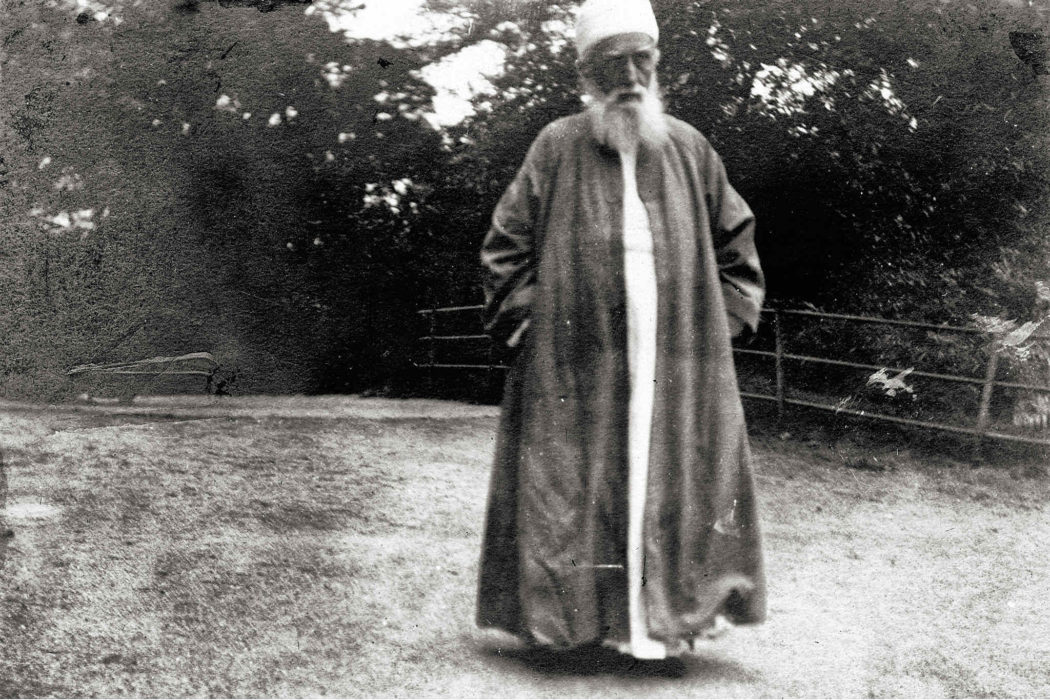THE HOT SUN BEAT down on ‘Abdu’l-Bahá and his companions as they sat on the grass in an expansive New York park. One of them read aloud from the July 7, 1912 edition of The Sun, a popular New York paper. The half-page story was entitled: “ABDUL BAHA GIVES HIS IMPRESSIONS OF NEW YORK.”
“He hasn’t cared to see any of the notable buildings of New York and has not visited the museums and art galleries,” the article stated. In fact, “He has seen less of New York and this country than the average traveller from abroad, and although he is to remain here until fall, there is little likelihood that he will see much more before he departs.”
Despite an itinerary that has had him moving between New York, Washington, Chicago, Pittsburgh, Boston, and Philadelphia, ‘Abdu’l-Bahá can hardly be classified as a tourist. “I am not interested in things that are merely beautiful to look at,” he said. “I have nothing to do with mortar and clay. I wish to view an edifice that is never to be destroyed.”
‘Abdu’l-Bahá, despite the great praise he had often given America’s material development, their democratic government, and their commitment to liberty, pointed out that something was missing. Speaking to the reporter about his time in Europe and America, he commented: “Consider that the body politic in these countries is day and night exerting itself to the utmost in order to obtain wealth, but you do not have happiness, love and unity among hearts such as ought to obtain.”

He went on to present a solution: “From the beginning of human society the means for advancement may be reduced into two,” he said. One he described as philosophy, which entails human thought and material civilization, and the other religion, taught by the successive manifestations of God, creating divine civilization. “These two civilizations are like two wings for man wherewith he can soar,” he noted, then added in a poetic turn-of-phrase: “The earth’s sphere, however much it may ignite lamps, nevertheless is ever in need of the effulgence of the sun.”
The article did convey a few of ‘Abdu’l-Bahá’s more “touristy” impressions of America. The nation’s capital had made an impression on him. “Washington is small, but it is a good city,” he commented. “It is most delightful and refreshing, like a garden.” Then he added: “While the capitals of Europe are very much larger, I like Washington best.”
The article ended by noting that ‘Abdu’l-Bahá had a message for America: “I counsel them all that they may day by day strengthen the bond of love and amity . . . that they may unfurl the divine banner of justice” and “realize and treat each nation as a family composed of the individual children of God.”






